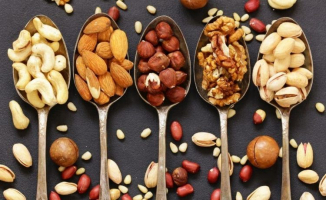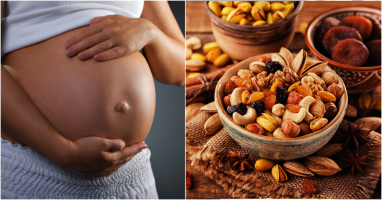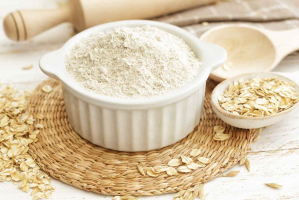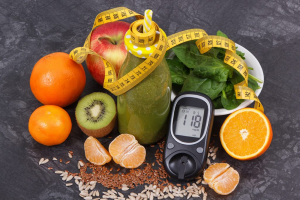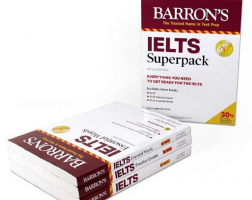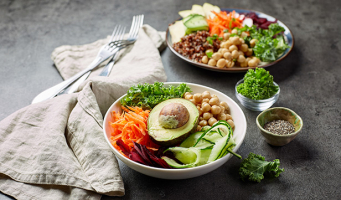Top 5 Best Nuts for Diabetes
Nuts are an excellent source of nutrition and have a number of health advantages. Some nuts, on the other hand, are better for diabetics than others. Nuts can ... read more...be a good snack for people with type 2 diabetes because they may help prevent heart disease, keep blood sugar under control, and even aid weight loss. So, which nuts are best for diabetes? Toplist will give you detailed information with this list!
-
Walnuts are the first nut on the list of the best nuts for diabetes. Walnuts, also known as "akhrot" in Hindi, are incredibly nutritious and safe to eat during pregnancy. The kernel of a walnut resembles a brain, and not only does it resemble a brain, but it also aids in brain function. Walnuts can also be used in baked goods, meat and fish meals, as well as vegetable and fruit salads. Besides, walnuts can be eaten in a variety of ways. They can be eaten whole or finely chopped, depending on your preference.
According to a small randomized controlled trial published in the journal Diabetes, Obesity, and Metabolism in July 2017, walnuts may help boost feelings of fullness, decrease unhealthy food cravings, and potentially support weight loss. Walnuts are also high in alpha-lipoic acid (ALA), which can help reduce inflammation, making them a favorite nut to suggest to everyone. Diabetes, as well as other diseases like Alzheimer's and heart disease, are linked to inflammation.
Serving size: about 14 shelled halves
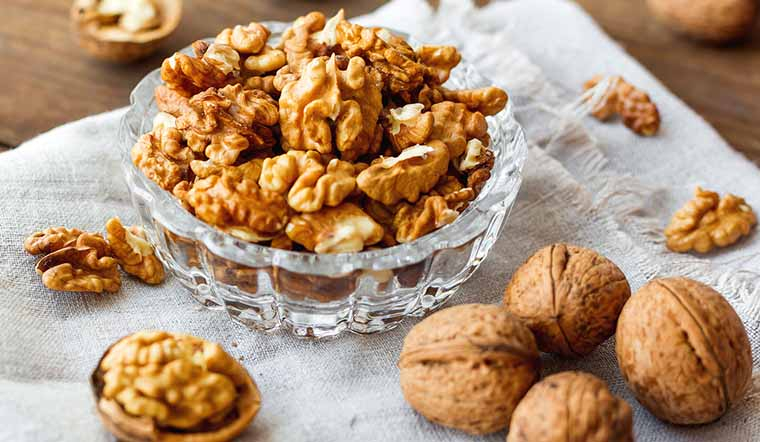
Walnuts. Photo: bachhoaxanh.com 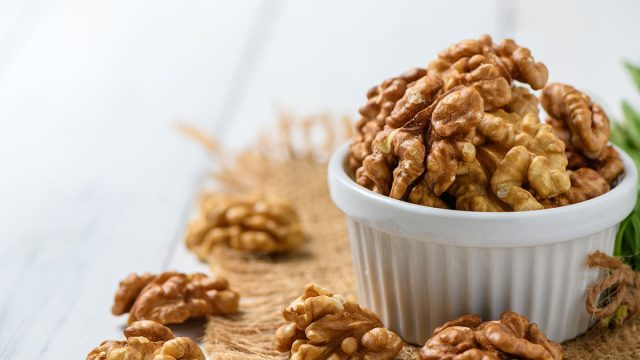
Walnuts. Photo: eatthis.com -
The edible fruit of the almond tree, which grows primarily in the Middle East, is known as almonds. Almonds have long been regarded as the epitome of health and wellness, as they are tasty, nutty, and crispy. The kernels are one of the best sources of plant-based nutrients for good health. The almond kernel has a brown exterior peel and creamy-white meat. It is oval to conical in shape, measures about 2 cm long and 1 cm wide, and weighs 1.5 to 2 grams. Its cultivation and processing have become a major commercial crop in many parts of the world, including the United States, in recent years.
According to a previous study, almonds help people with type 2 diabetes maintain their glucose levels and minimize their risk of cardiovascular disease. There is one more reason almonds are a diabetes superfood: According to the National Institutes of Health (NIH), a 1-ounce (approximately 3 tbsp) portion contains 80 milligrams of magnesium, making it a great source. Magnesium supplementation can aid with bone health, blood pressure regulation, blood glucose control, and muscle and neuron function.
Serving size: about 23 nuts
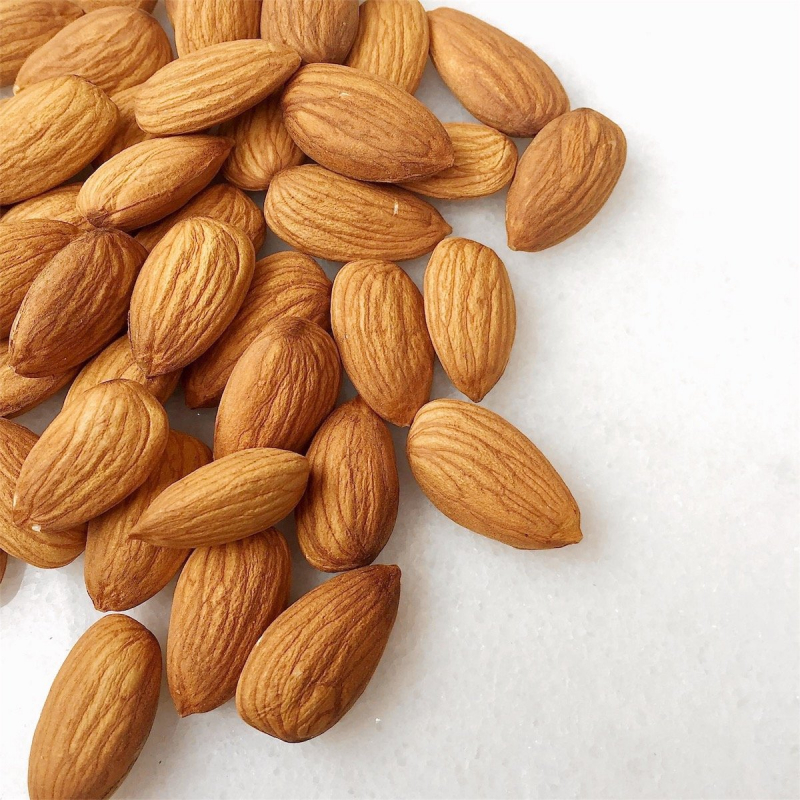
Almonds. Photo: alibaba.com 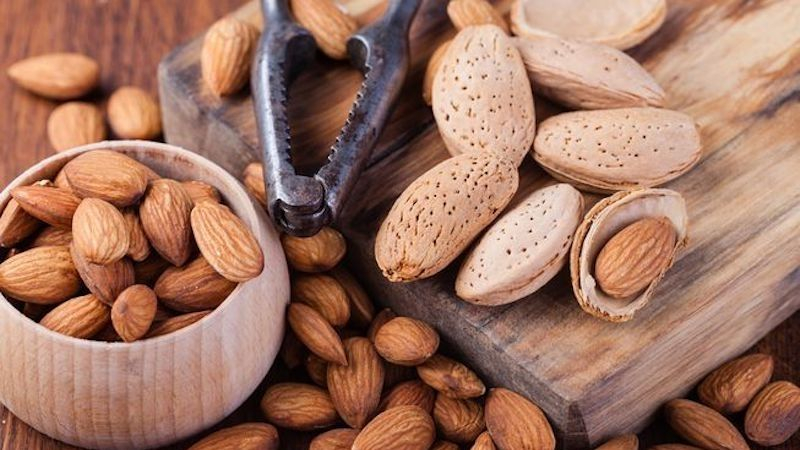
Almonds. Photo: bachhoaxanh.com -
According to the Cleveland Clinic, pistachios have a high protein content as well as a blend of healthy monounsaturated and polyunsaturated fats that can help lower cholesterol levels. According to the CDC, lowering harmful "LDL" cholesterol can reduce your risk of heart disease, a common complication of diabetes.
Pistachios are high in calories but also high in protein and healthy fats, which help you feel satiated for longer. According to a 2014 study published in the Review of Diabetic Studies, eating pistachios can assist people with diabetes in lowering their blood sugar levels. In a 2015 study, participants with type 2 diabetes were given either a pistachio-enriched or conventional diet for four weeks. Researchers discovered that when comparing the pistachio group to the standard diet group, the ratio of HDL to LDL cholesterol was much improved in the pistachio group. Triglyceride levels were also lower in those on the pistachio diet, indicating better heart health.
Serving size: about 45 nuts
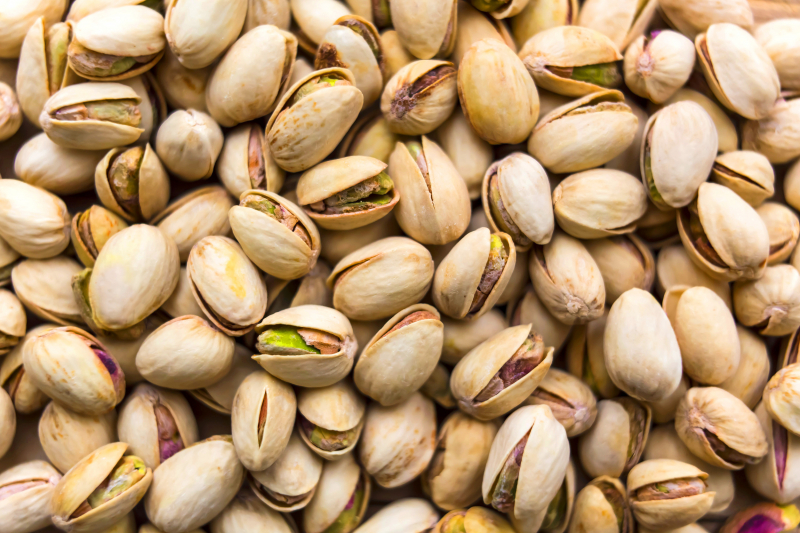
Pistachios. Photo: bestlifestylebuzz.com 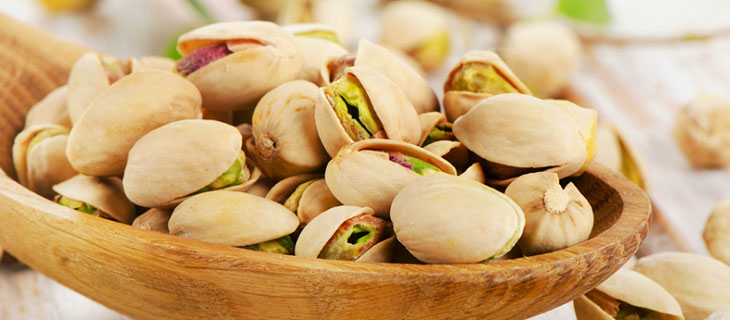
Pistachios. Photo: dulinuts.com -
Peanuts, with their high fiber and protein content, are a very diabetes-friendly food. According to a small pilot study published in the 2019 issue of the Journal of the American College of Nutrition, peanuts not only have a low glycemic load (a measure of how quickly a food tends to raise blood sugar), but they may also help regulate blood sugar.
According to a study published in the Journal of the American College of Cardiovascular Disease in November 2017 that connected nut consumption (including peanuts) to a lower risk of heart disease, According to the British Diabetes Association, Diabetes.co.uk, eating peanuts can successfully lower LDL cholesterol. You can put a handful of peanuts into your next salad or stir fry, or add a teaspoon of low-sodium peanut butter to your daily oatmeal or smoothie.
Serving size: about 28 peanuts
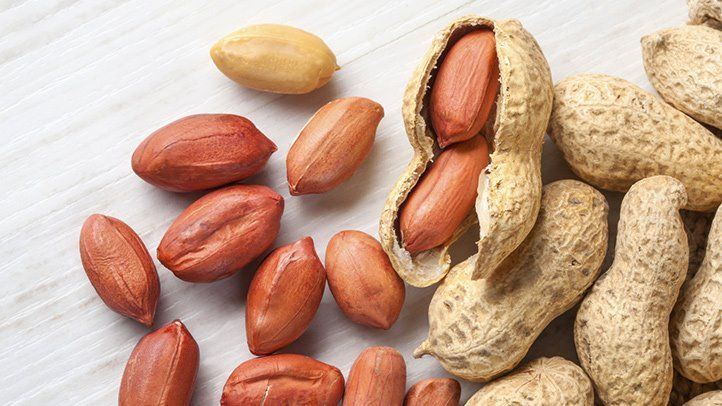
Peanuts. Photo: everydayhealth.com 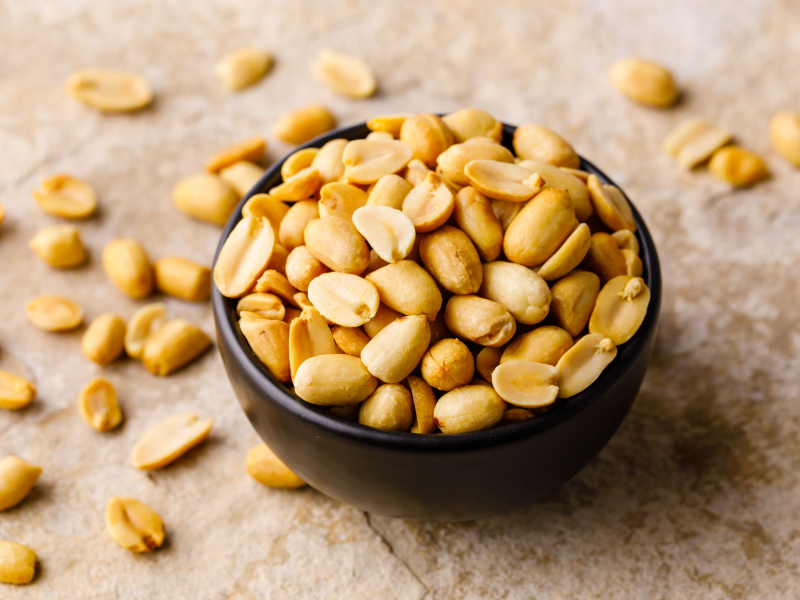
Peanuts. Photo: verywellhealth.com -
Cashew nuts are kidney-shaped seeds that are popular in sweets and desserts. Cashews are high in healthy fats and low in carbs. Cashews include 9 g of carbohydrates, 5 g of protein, 12 g of lipids, and 1 g of fiber in 28 g. The fat in cashews contains oleic acid, which raises HDL levels (good cholesterol). Cashew nuts are also high in copper, manganese, magnesium, vitamins, minerals, and antioxidants, all of which are beneficial for the brain, bone, and immune health.
Cashews can help reduce the risk of heart disease by improving the ratio of HDL to LDL cholesterol. In a 2018 study, 300 people with type 2 diabetes were randomly assigned to either a cashew-enriched diet or a standard diabetes diet. After 12 weeks, those on the cashew-enriched diet had reduced blood pressure and greater HDL cholesterol levels. Cashews had no adverse effects on blood glucose levels or weight.
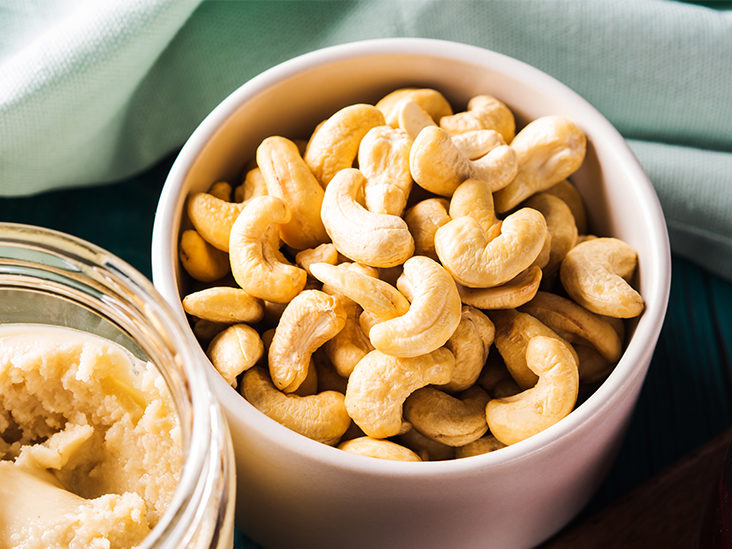
Cashews. Photo: healthline.com 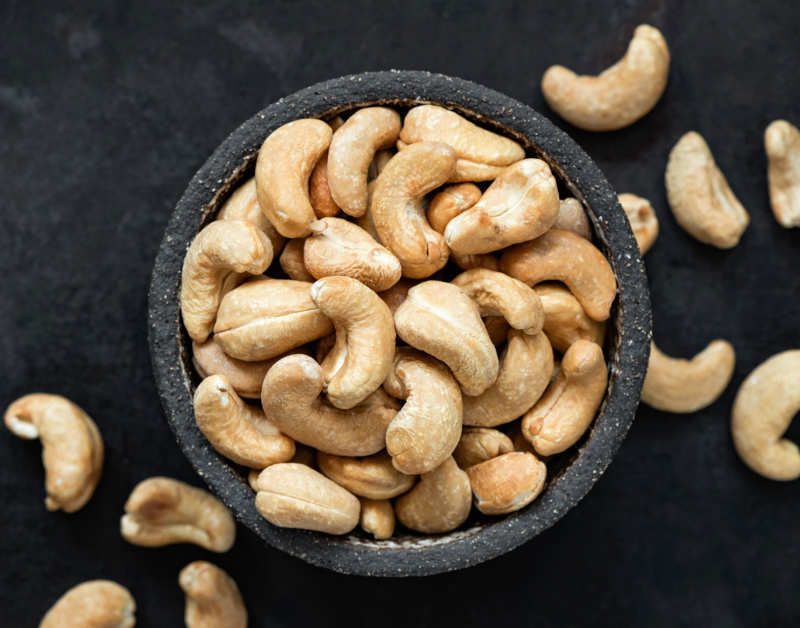
Cashews. Photo: eatingwell.com







